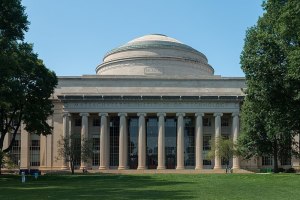Intelligent Design Supporters Say Theory in 'Infancy'
One of the country's leading proponents of intelligent design says there is much to be learned about how life evolved on this planet.
LOUISVILLE, Ky. (AP) - To William Dembski, all the debate in this country over evolution won't matter in a decade.
By then, he says, the theory of evolution put forth by Charles Darwin 150 years ago will be "dead."
The mathematician turned Darwin critic says there is much to be learned about how life evolved on this planet. And he believes the model of evolution accepted by the scientific community won't be able to supply the answers.
"I see this all disintegrating very quickly," he said.
Dembski is one of the country's leading proponents of intelligent design, which asserts that certain features of living organisms are best explained by an intelligent cause. The ideas put forth by Dembski's movement have piqued the interest of some local school boards, churches and politicians - including Kentucky's governor and President Bush.
But biologists call Dembski's statements on the death of evolution absurd. They say intelligent design, or ID, has failed as a science, so its supporters are trying to foster interest in a receptive public.
Dembski, who holds a Ph.D. in both mathematics and philosophy, teaches a course on intelligent design at the Southern Baptist Theological Seminary in Louisville. He calls Darwinian evolution "viscerally unacceptable" to most Americans.
"It is a reasonable question to ask if there are patterns in biological systems that point us to intelligence," he said in an interview. "It is a reasonable question to ask what are the limits to evolutionary mechanisms."
Kentucky Gov. Ernie Fletcher called design by an intelligent source a "self-evident truth" in his annual State of the Commonwealth address in January. Fletcher has said he would encourage schools to teach the concept.
That is despite a December ruling by a federal judge in Pennsylvania that ID should not be taught as science in Dover, Pa., schools.
U.S. District Judge John E. Jones wrote that "overwhelming evidence at trial established that ID is a religious view, a mere relabeling of creationism, and not a scientific theory." Jones found intelligent design failed as a scientific theory because it can't be tested.
"He pretty much pegged it for what it was," said James Krupa, an associate biology professor at the University of Kentucky. "It really should just be called God theory."
Krupa said evolution science is not dying.
"It's the driving force, it's the foundation of all biology," said Krupa, who teaches evolution courses at the university. "Natural selection and evolution theory are getting stronger and stronger."
For the American public, opinions on evolution vary.
According to a 2004 Gallup poll, about 35 percent of Americans believe Darwin's theory is well supported by evidence, another 35 percent said it is not and 29 percent said they didn't know enough about it.
Several state legislatures are considering bills critical of the traditional teaching of evolution in the classroom. Legislators in Oklahoma and Missouri have introduced measures to change science teaching standards. In Nevada, a masonry contractor has introduced a constitutional amendment that says there are many questions about evolution.
"It's an ongoing debate; I'm not surprised that the public tends to be somewhat interested in it," said Rob Crowther, a spokesman for the Seattle-based Discovery Institute, which funds intelligent design research.
That debate is fueled by a belief that Darwinian evolution is linked to atheism, said Eugenie Scott, director of the National Center for Science Education, and former UK professor.
"This is actually, I think, key to understanding this whole controversy in this country: people think that because science restricts itself to a natural cause, it's therefore saying that God had nothing to do with it."
Dembski and other ID proponents say intelligent design is in its "infancy" and not yet ready to be taught alongside evolution in the science classroom. Crowther said the Discovery Institute actually opposed the actions by the Pennsylvania school board that brought the federal court case.
"People assume that we must be actively and aggressively seeking for intelligent design to be put in the classroom, and that's not our position. What should be required in a classroom is more about evolution, and by that we mean students should be able to learn not only the evidence that supports it, but also some of the criticisms of the theory."
That is enough for now, Dembski said.
"I guess I would say that even though intelligent design has a long way to go, it seems to me evolutionary theory is so problematic that just about any alternative that's scientific, or has the possibility (of being scientific) should be allowed on the table."
Copyright © 2006 The Associated Press. All rights reserved. The information contained in the AP News report may not be published, broadcast, rewritten or redistributed without the prior written authority of The Associated Press.




























